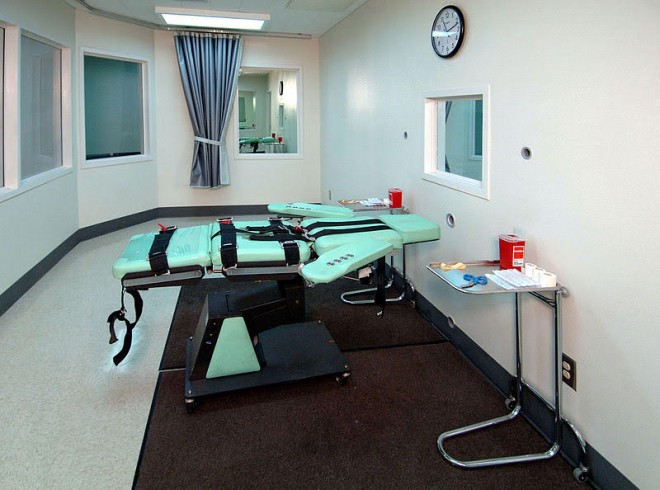
The Riverside County D.A.’s office likes seeking the death penalty so much it was featured by the BBC in December in a chilling article called, “Why is one county handing down one in six US death sentences?” The BBC darkly observed: “The number of death sentences handed down in the US dropped by a third in 2015, continuing a long-term trend, but one county in California seems to be going against the grain.”
Defensively, Riverside County D.A. Michael Hestrin, who took office at the beginning of 2016, told the BBC: “Of the 11 new cases that came in this year, where I was the first to make a determination, I am only seeking the death penalty four times.” Realizing (perhaps) that this grim statistic still makes Riverside County an outlier (in California, the United States, and the world) in its steadfast bearhug of capital punishment, Hestrin said: “the people of Riverside support the death sentence to [a] greater degree than other counties” because “there is a certain feeling of how they want criminal justice to operate.”
Barely a half-year later, D.A. Hestrin is now, in an opinion piece he has had published around the state (see, e.g., Times of San Diego), seeking to export Riverside County’s zeal for state-sponsored executions to all of California. An unsurprising cheerleader of Proposition 66 (a terribly flawed ballot initiative that ghoulishly and fecklessly seeks to “speed up” executions), Hestrin has been mischaracterizing Riverside County’s infatuation with the death penalty – macabre enough, as described above, to draw the unseemly attention of the foreign press – as an infatuation possessed by all Californians. It’s not.
Conscientious Californians are horrified by the very real prospect our criminal justice system might someday execute an innocent person – if it has not already – because, as any consumer of news or the casual courtroom TV drama knows, DNA evidence and other emerging scientific disciplines continue to expose flaws in how we administer justice in this country (even with the great legal system that we have). Californians are equally revolted – and have been for some time – by the disproportionately unjust imposition of capital punishment on poor people of color.
We are tired of the constant acerbic legal and public relations battles that will always surround capital punishment – unless it’s replaced with a penalty of life without the possibility of parole (LWOP). We plain don’t want to hear about the death penalty in the news in our state anymore. And, we don’t want precious time and scarce resources diverted from the rest of our criminal justice (and our court system generally) because of continued fighting over the imposition of death sentences. We’ve had enough.
That’s why I’m confident that Californians will overwhelmingly vote against Proposition 66, which D.A. Hestrin champions. Instead, I believe they’ll vote for the competing ballot initiative, Proposition 62, which will replace capital punishment in California with a sentence of LWOP – just like other civilized, peaceful, justice-minded people the world-over have done.
Proving how out of touch D.A. Hestrin’s views are with mainstream Californians, his recent op-ed pooh-poohs the savings Proposition 62 is projected to yield by replacing the death penalty with LWOP; Hestrin writes: “Even at an estimated $150 million reduction in annual costs, one would still have to concede that the savings is a paltry drop in the bucket compared to the vast size of California’s budget and hardly the worst use of taxpayer funds.”
Excuse me? Is that the standard by which Californians should judge the spending of $150 million dollars by the state of our hard-earned tax dollars each year – that we shouldn’t care about it because $150 million is a “paltry drop in the bucket?” – or, because it is, “hardly the worst use of taxpayer funds?!”
It’s a good thing Hestrin is not running California’s economy because $150 million dollars could do a lot of good for California schools, including schools in Riverside County. Consider for a minute if the state invested even a portion of the projected $150 million a year (from the savings that ending the death penalty in California is projected to yield) on a school near your house?
If we vote for Proposition 62 (and maybe give that extra money to schools) and against Proposition 66 (which throws more money down the drain on a barbaric, antiquated punishment that demeans us all and that the civilized world rejects), wouldn’t that be an investment we could truly claim, as Hestrin’s op-ed puts it, as an investment that is “hardly the worst use of taxpayer funds”?
About the Author: Stephen Cooper is a former D.C. public defender who worked as an assistant federal public defender in Alabama between 2012 and 2015. He has contributed to numerous magazines and newspapers in the United States and overseas. He writes full-time and lives in Woodland Hills, California.
















